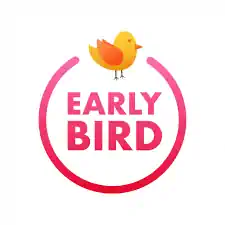Every level of the Commission (From the Commission Secretary to the Mentees) has specific roles and responsibilities assigned to them as per the TIMEC policy and guidelines
RoleS of Regional Directors and County Directors
i) Guide and coordinate the identification and selection of mentors and coaches in the Region and County.
ii) Maintain a databank of mentors and coaches
- Appoint a technical committee to oversee and coordinate the implementation of the programmes
iv) Organize Training of Trainers programmes for the identified Mentors/ Coaches
v) Facilitate as a MT during capacity building programmes of TOTs
- Monitor and evaluate implementation of the programmes
- vii) Submit progress reports of the programme quarterly and annually to Headquarters.
Role of Sub-County Directors
(i) To work with Heads to identify and train ToTs at Sub County and Zonal levels
(ii) Coordinate and support field officers in the programme roll out
(iii) Provide opportunities for mentors, coaches and mentees to share their experiences.
(iv) Provide mentors with feedback on their mentoring.
(v) Ensure institutionalization of the programme at all levels and sensitization of relevant stakeholders on the benefits of the programme.
(vi) As Master Trainers (MTs) build capacity of mentors and coaches among the identified professionals and champions such as beacon teachers, ICT champions, performing heads, senior teachers, religious leaders, other professionals, depending on identified needs.
(vii) Be resource persons during Zonal/cluster groups/school meetings to share professional experiences and expertise.
The Role of the Heads of Institutions in Mentorship
- Identify and select mentors and coaches at school level
- As a TOT, train Mentors and Coaches at institutional level.
- Institutionalize TIMEC by articulating benefits of Induction, Mentorship and Coaching as an initiative to improve conduct and performance.
- Create flexibility by allowing for time out for the mentors/coaches and mentees as scheduled, to allow for participation, tracking progress and feedback.
- Support mentors and coaches to develop relevant activities based on the needs of mentees at the institutional level.
- Sensitize the relevant stakeholders on the strategic benefits of the programme to the institution.
- Supervise implementation of the programme at institutional level and address any emerging issues accordingly.
- Encourage and support eligible teachers to take up mentorship and coaching duties and responsibilities in the institution.
- Maintain a databank of mentors and coaches at the school level.
- Collaborate with other institutions to strengthen mentorship programme at Zonal level /cluster groups.
- Submit periodic reports to the Sub County Director for Primary and County Director for the post primary institutions.
- Any other relevant responsibilities assigned from time-to-time.
Conclusion
- This is a pre-emptive approach to handling teacher discipline; an approach that seeks to retain more teachers while also preventing the likelihood of teachers (especially the young ones) from sinking into indiscipline
- Various appendices provide monitoring and reporting tools to make the programme a success
